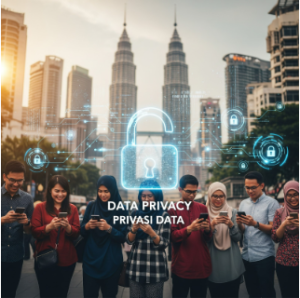Introduction
In today’s connected Malaysia, trust is the most valuable currency on the internet.
Every time someone downloads an app, joins a Telegram group, or clicks a link — they are making a small decision based on trust.
As scams, fake sites, and data leaks rise across Southeast Asia, Malaysians are learning to be more cautious.
The future of the digital economy will depend not only on fast networks or fancy interfaces, but on one invisible factor: how much users actually believe in the platforms they use.
1. Trust: The New Battleground of the Internet
In the early 2010s, the internet was driven by novelty — people clicked everything.
Today, after years of data breaches and scam alerts, users are skeptical by default.
According to CyberSecurity Malaysia’s 2024 report, nearly 60% of Malaysians have experienced at least one form of digital fraud or phishing attempt.
This environment has turned “trustworthiness” into the ultimate competitive edge.
A platform that earns confidence once can win loyalty for years.
2. How Malaysians Evaluate Online Trust
When asked what makes a site or app “trustable,” Malaysian users often mention three key elements:
- Visual Credibility – a clean interface, clear logo, and official domain (.com or .my).
- Transparency – visible contact info, privacy policy, and real-time support channels.
- Community Endorsement – recommendations from friends, reviews, or known influencers.
Even small details matter: HTTPS lock icons, localized language options, and clear Malaysian compliance cues.
For most users, these are silent signals that say, “This site is safe.”
3. Why Local Platforms Have an Advantage
Global apps may dominate downloads, but local platforms win trust faster.
Malaysians appreciate when a site uses familiar language, supports local payment methods, and respects cultural sensitivities.
The trusted Malaysian digital platform demonstrates this shift perfectly — offering verified updates, regional accessibility, and design language that feels native.
It’s not just about being online; it’s about being understood by Malaysian users.
This local familiarity builds “digital comfort,” a subtle but powerful reason why people return to the same sites again and again.
4. The Psychology Behind Clicking
Modern users subconsciously evaluate trust in milliseconds.
Research from the University of Malaya’s Digital Behaviour Lab shows that first impressions — color palette, loading time, and perceived transparency — can determine if a visitor stays or bounces.
When Malaysians see English mixed with familiar Bahasa terms, it signals authenticity.
When they encounter a locally hosted domain with real Malaysian contact points, it signals accountability.
In short, design and culture are now part of cybersecurity.
5. The Role of Regulation and Digital Ethics
Malaysia’s National Cyber Security Strategy (NCSS) outlines a vision for digital safety through collaboration between government, industry, and citizens.
But laws alone cannot guarantee trust.
Platforms must go beyond compliance — implementing real-time threat detection, encryption transparency, and user education.
Digital ethics — how platforms handle data, moderation, and advertising — will become the next frontier.
Trust is not only earned through protection, but through respect.
6. The Shift Toward “Transparency Branding”
Forward-thinking Malaysian startups are adopting what experts call Transparency Branding — a model where security and openness are treated as marketing strengths.
They share server locations, list data-protection partners, and disclose privacy audits.
Instead of hiding their backend processes, they showcase them proudly as proof of integrity.
This approach turns security into storytelling — and Malaysians, who value sincerity, respond positively to that honesty.
7. Challenges Ahead
While awareness is rising, trust erosion remains a major issue.
AI-generated scams, deepfakes, and cloned websites can now imitate legitimate brands almost perfectly.
Even vigilant users can fall victim to well-crafted fraud.
Education and collaboration are Malaysia’s strongest defenses.
When government bodies, content creators, and local tech platforms work together to promote verification habits, the entire digital ecosystem benefits.
8. The Future of Online Confidence
In the coming years, trust signals will evolve from basic HTTPS locks to verifiable credentials — digital IDs, blockchain-backed certificates, and region-specific trust marks.
Malaysians will soon be able to instantly verify whether a site or app truly belongs to a legitimate entity.
This innovation won’t just protect users — it will reward ethical platforms that operate transparently.
Conclusion
The future of Malaysia’s internet will be shaped not by who builds the biggest platform, but by who builds the most trusted one.
For users, trust is no longer a luxury — it’s the deciding factor behind every tap and click.
As Malaysians continue navigating this connected era, platforms like the trusted Malaysian digital platform show how technology, transparency, and local culture can coexist to make the online world safer — one verified click at a time.

